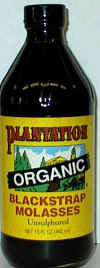Supply side economics
The classroom was the kitchen table, after a dinner meal of
 anything and biscuits (NB to Aussies: American biscuits are like unsweetened scones that are eaten as a bread at meals; a regular particularly at most meals in the South). Dad would set aside a few biscuits to have for desert. Then he'd get out his bucket of sorghum molasses and pour out just the certain amoun
anything and biscuits (NB to Aussies: American biscuits are like unsweetened scones that are eaten as a bread at meals; a regular particularly at most meals in the South). Dad would set aside a few biscuits to have for desert. Then he'd get out his bucket of sorghum molasses and pour out just the certain amoun t of that delectable blackstrap in a pool on his plate to apply to the available biscuits. Most times he'd ritualistically blend the butter through the molasses, sometimes he'd just butter the biscuit.
t of that delectable blackstrap in a pool on his plate to apply to the available biscuits. Most times he'd ritualistically blend the butter through the molasses, sometimes he'd just butter the biscuit. Then he'd slice the biscuits in half and dollop some of the buttered molasses onto the biscuits with a knife, real judicious like, and and purr as he ate biscuit and molasses, with a careful eye ever on
 the remaining tarpits of blackstrap and halves of biscuit. When he got down to scraping the plate clean with just the right amount of molasses to ladle onto the last bite of biscuit, the world was in harmony, the stars shone, angels sang and Dad was in Heaven. It was a real art and served as a gre
the remaining tarpits of blackstrap and halves of biscuit. When he got down to scraping the plate clean with just the right amount of molasses to ladle onto the last bite of biscuit, the world was in harmony, the stars shone, angels sang and Dad was in Heaven. It was a real art and served as a gre at dramatic performance I'll always remember. I'm sure there were times when things just didn't pan out quite as nicely as that, but I don't care to recall such matters.
at dramatic performance I'll always remember. I'm sure there were times when things just didn't pan out quite as nicely as that, but I don't care to recall such matters.In the world of commodities something similar is always going on. The miners try to supply just enough to satisfy the demand, to cover their costs and avoid an over-stock that drives down price and adds to warehousing costs. Any time you get a sudden chan
 ge in either the supply or demand, your biscuits and molasses don't work out.
ge in either the supply or demand, your biscuits and molasses don't work out.Lately, all the focus has been on the demand (apparently unending and not too squeemish about price) for commodities, especially energy and base metals, and the limited supply available to meet the demand. This has led to a land-rush to buy whatever commodity stock trades on the exchanges as a certain road to riches. Regular readers already know my take on this. Today's story is meant to reiterate my reminder that supply is not static; it is in constant search of equilibrium with demand. There may be a finite amount of oil, coal, iron ore, whatever, but we are far from it. If it is in short supply at the moment, it is due to an imbalance coming about from a sudden, unanticipated demand. Given the demand, supply will come on line and eventually the biscuits and molasses will balance out and the firmaments will bear gladtidings.
Tin is a base metal. But the supply of tin has now caught up with and outpaced the demand. The price of tin has dropped 33% in the last year. This has caused the closure of the Bluestone tin mining in Tasmania and the loss of a large part of the state's economy. See, http://www.smh.com.au/news/business/tin-price-fall-closes-renison-mine/2005/10/03/1128191658541.html If you have your eggs in a basket of Australian resources, that egg just broke.
Labels: Commodities, Favorite posts

1 Comments:
Makes me wax nostalgic for tables singing at children, biscuits, gravy, scrambled eggs and bacon, red plum jam, coffee, canteloupe, sorghum molasses, and FAMILY! Missing you very much, Auntie Bat
Post a Comment
<< Home